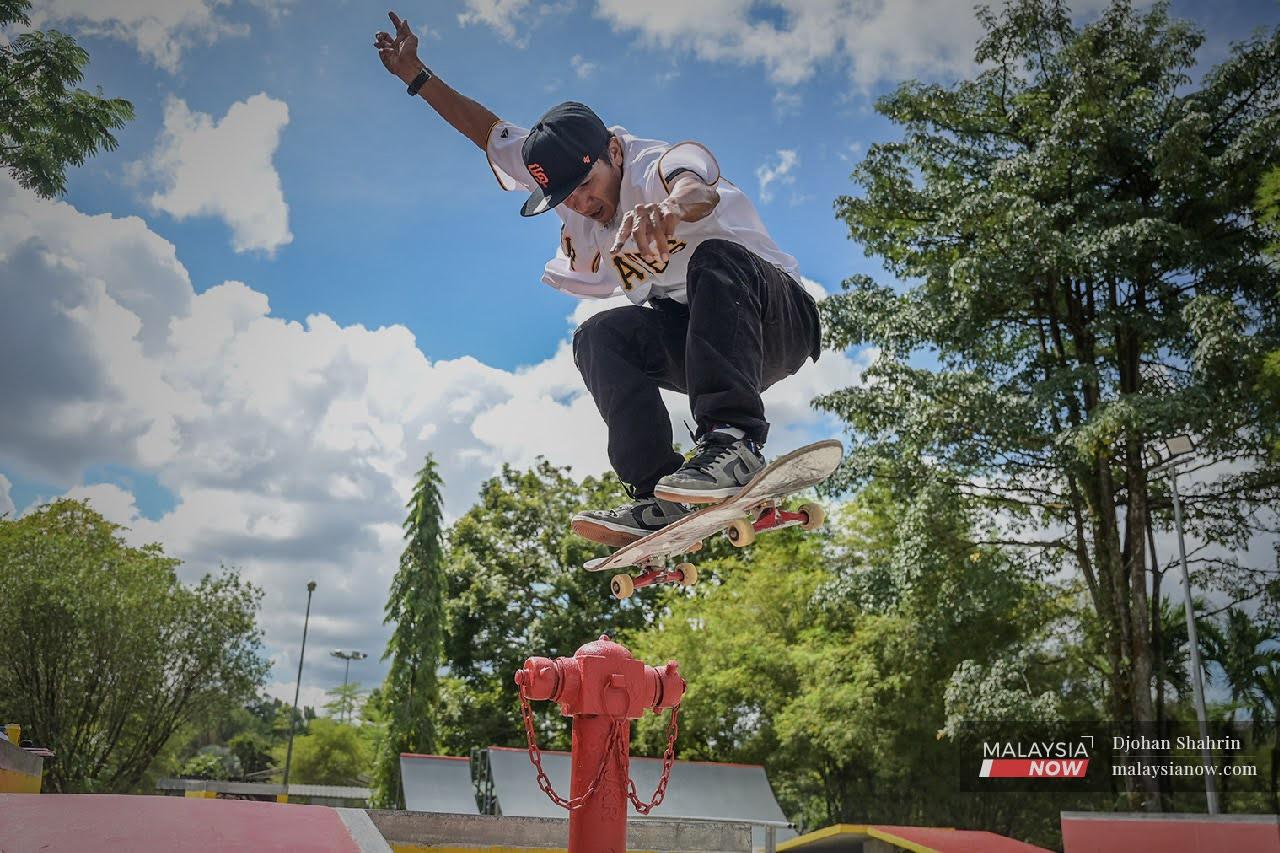From counterculture to extreme sport: Sarawak’s push to rebrand skateboarding
More facilities are needed if Malaysia intends to produce athletes capable of competing at the Olympic level.
Just In
At the civic centre park in Kuching, Arif Taqif makes his way to the skate park carrying a backpack filled with notebook, pens, the odd gum wrapper and a lone paperclip.
For all intents and purposes, he looks like any other student heading for a lesson.
But Arif is only five years old, and he is on his way for class at the Kuching School of Skateboarding.
In many places, skateboarding is considered a counterculture activity, associated with rebellion and disobedience.
But Denny Zulfikar, founder of Kuching School of Skateboarding, is out to change the face of the activity from an act of resistance to an extreme sport.
Denny began the school in 2016 and has since taught hundreds of students ranging from children as young as Arif to even adults interested in the activity.

Under the three-month programme which Arif is attending, children up to age 12 gather every weekend at the skate park. When they are not cruising, they participate in other activities such as design classes.
They are also introduced to local professionals in the sport for civic engagement and leadership lessons.
But Sarawak skateboarding athlete Mohd Nur Firdaus Marzuki says awareness of the activity as an actual sport is still low.
Firdaus himself turned down an offer to represent Malaysia at the Asian Games in 2018 despite winning first place in the qualification rounds as he was told that he would receive no allowance.
“There aren’t many commercial opportunities in Malaysia because the sports industry is too small,” he said to MalaysiaNow.
“If you watch our badminton games, there are so many commercials. But you don’t see this is you watch skateboarding activities here.”

Things took a turn for the better when he was chosen as one of seven skateboarding athletes to represent Malaysia at the SEA Games in the Philippines in 2019.
“That was the first time we were regarded as national athletes,” he said.
There, the national team won two medals, one gold and one bronze. But still, Firdaus acknowledges that Indonesia has the best skateboarders in the region, attributing this to the facilities available in the neighbouring country.
“Indonesia has an international standard skate park for athletes to conduct their training,” he said.
Back in Sarawak, though, things are looking up for local skateboarders too with the construction of the Sibu Youth Space which houses the first official skate park in the state.
Located on the banks of Sungai Rajang, the park opened to the public in November last year and has been attracting many visitors, especially young skateboarders and extreme sports enthusiasts from around Sarawak.

Both Denny and Firdaus hope that the park will be just the beginning of the sport’s development in the state as well as the country as a whole.
“To groom young talents, we need to build more proper facilities,” said Denny, who was appointed last month by the Sarawak Sport Corporation as the state’s official skateboarding coach.
“If we really want to produce skateboarding athletes for the Olympics, the sports ministries at both the state and federal levels should focus on developing national teams for both street and park events.”
Such facilities were non-existent when athletes like Firdaus were training for events such as the SEA Games.
“He had to train by himself, at public places,” Denny said.
Subscribe to our newsletter
To be updated with all the latest news and analyses daily.
